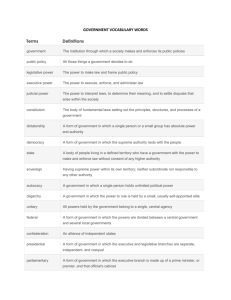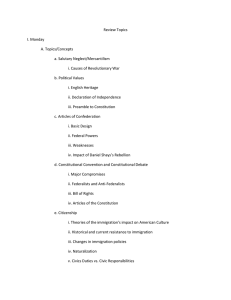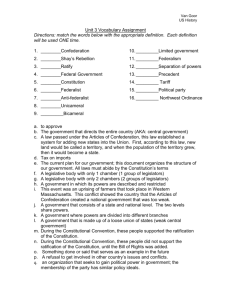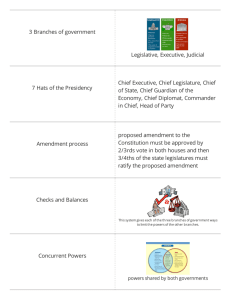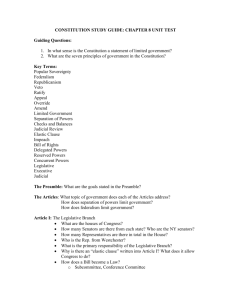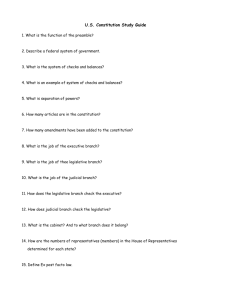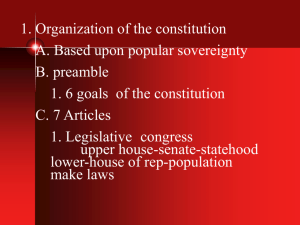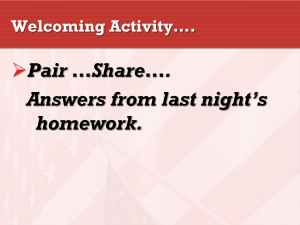US Government Vocabulary Activity: Key Terms & Questions
advertisement
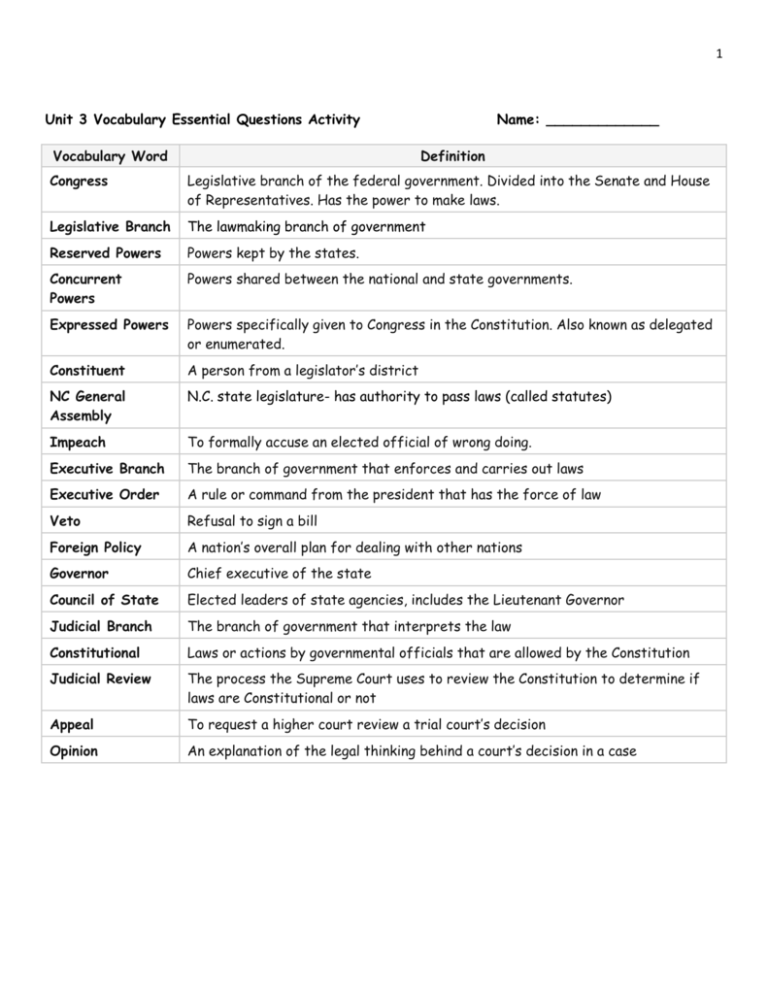
1 Unit 3 Vocabulary Essential Questions Activity Vocabulary Word Name: _____________ Definition Congress Legislative branch of the federal government. Divided into the Senate and House of Representatives. Has the power to make laws. Legislative Branch The lawmaking branch of government Reserved Powers Powers kept by the states. Concurrent Powers Powers shared between the national and state governments. Expressed Powers Powers specifically given to Congress in the Constitution. Also known as delegated or enumerated. Constituent A person from a legislator’s district NC General Assembly N.C. state legislature- has authority to pass laws (called statutes) Impeach To formally accuse an elected official of wrong doing. Executive Branch The branch of government that enforces and carries out laws Executive Order A rule or command from the president that has the force of law Veto Refusal to sign a bill Foreign Policy A nation’s overall plan for dealing with other nations Governor Chief executive of the state Council of State Elected leaders of state agencies, includes the Lieutenant Governor Judicial Branch The branch of government that interprets the law Constitutional Laws or actions by governmental officials that are allowed by the Constitution Judicial Review The process the Supreme Court uses to review the Constitution to determine if laws are Constitutional or not Appeal To request a higher court review a trial court’s decision Opinion An explanation of the legal thinking behind a court’s decision in a case 2 HOTQs: Answer these Higher Order Thinking Questions, using all the vocabulary terms, in complete sentences (on a separate sheet of paper.) Underline each vocabulary term. (Tip: Pre-write by listing the vocabulary terms you will use for each question below.) 1. Why is having a limited government beneficial? (L,E,J) 2. What relationship exists between the federal, state, and local governments? (L,E,J) 3. What reserved powers are given to the North Carolina state government? (L&J) 4. What relationship exists between the federal, state, and local governments? (L,E,J) 5. Why and how should government enforce laws while still insuring equal protection under the law? (L&E) 6. How does the government meet the needs of its citizens? (E&J) 7. What role does the Judicial Branch play in federal and state government? (J) 8. What relationship exists between citizens and the government? (E) 9. What relationship exists between our government and the governments of other nations? (L&E)


